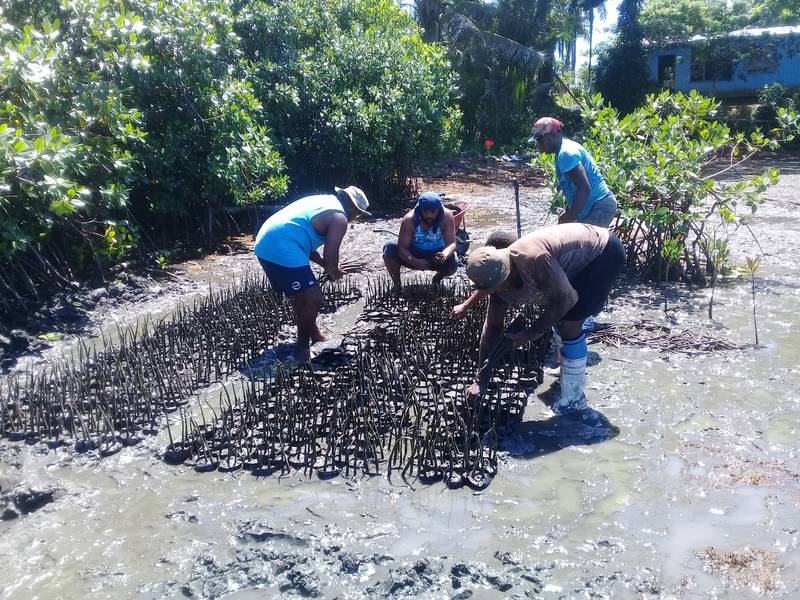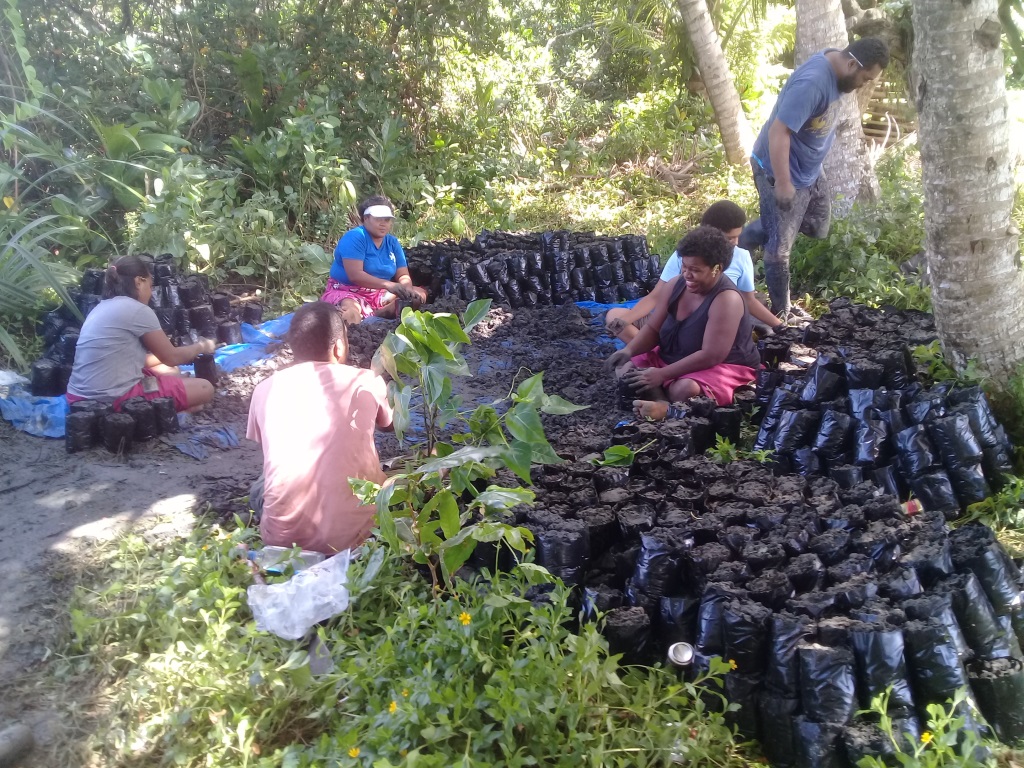Related News

One of the Institute of Applied Sciences (IAS)’s Fiji Global Environment Facility (GEF) 5 STAR Ridge to Reef (R2R) Project won a regional competition for Most Significant Change stories obtained from the communities where the project is implemented. The competition, organized by the GEF involved the gathering of testimonies and feedback of the district representatives of Namara, Tailevu in Fiji by the IAS Scientific and Technical Officers.
Mr Sekaia Muaduaduakibau, the District Representative for the six villages in the Namara district said that one of the key changes involved the changing of mindsets:
“Before the activity started, community members in the pilot sites were more concentrated on natural resources utilisation. All the villages in my district depend on marine resources for daily consumption and livelihood opportunities. They lack knowledge of natural resource conservation as no awareness is done at village level. There was so much emphasis on economic opportunities that we tend to forget about how we can sustain our natural resources for the benefit of our future generation.”
He added that when IAS conducted the awareness programme, there was keen interest from youth and women’s groups. Through the participatory approach by the facilitators, members of the village were able to establish a mangrove nursery for the first time as a practical action from their learnings. The implementation and the completion of the mangrove nursery in the two pilot sites had an enormous positive impact on the communities’ perspective towards their natural resources. With the depletion of coconut trees due to some of their past unsustainable practices they were keen to replant coconut trees and manage it sustainably. IAS facilitated the logistics in delivery of these coconut seedlings and they did the rest.
IAS is currently implementing the GEF funded Fiji R2R project that is facilitated by the UNDP and Ministry of Waterways and Environment since October 2018. The Fiji R2R Project primary aim is to preserve biodiversity, ecosystem services, sequester carbon, improve climate resilience and sustain livelihoods through a ridge-to-reef management of six priority water catchments on the two main islands of Fiji. The catchments are Waidina-Rewa, Tuva and Ba on Viti Levu and Labasa, Vunivia and Tunuloa on Vanua Levu The project will bolster Fiji’s biodiversity conservation priorities. One of the key output will be the identification of potential land and marine protected areas. It will also enhance the sustainable management of Fiji’s marine system with the inclusion of appropriate strategies to protect threatened marine species within the existing Fiji’s LMMA network. It also aims to reduce the negative impacts of land-based activities on the Marine Protected Areas through the development and implementation of integrated catchment management plans. This plan will include mangrove areas that need protection, adoption of appropriate sustainable land use practices, riparian restoration in adjoining upstream watersheds, rehabilitating of degraded forest land areas as well as strengthening the protection terrestrial and marine protected area.

IAS is at the forefront of a diverse range of research for this project. Among these are freshwater baseline surveys in the Ba catchment, shark and ray nursery assessments in Ba and Labasa, carbon sequestration measurements in Waidina and Tuva and biodiversity rapid assessments in Tunuloa and Tuva. Results of the baseline assessments that IAS is undertaking will help inform catchment management plans in all six catchments of the Fiji R2R Project. IAS collaborates with key Government and Non-Government stakeholders in all its activities.
The Acting Director, IAS, Dr Isoa Korovulavula acknowledged the enthusiasm and support of the communities involved in the R2R project in working with USP, IAS, “The interest and actions taken by the members of these communities is a reflection of their resolve to ensure that their natural resources are sustained.” He added that the strategic partnership with UNDP and Ministry of Waterways and Environment has been crucial in achieving the project deliverables and outcomes.
Read more on the completion poster here. For more information on the Fiji R2R project, contact Project Manager, Environment Unit, IAS, USP, Mr Teddy Fong, email: teddy.fong(at)usp.ac.fj
The Institute of Applied Sciences is a self-funded consultancy, training and research arm of the University that is located within the Faculty of Science, Technology & Environment. Its main areas of activity are analytical services, training, research and development and consulting services in areas related to natural resource management and biodiversity conservation. It also houses the Pacific Natural Product Research Centre and the South Pacific Regional Herbarium.